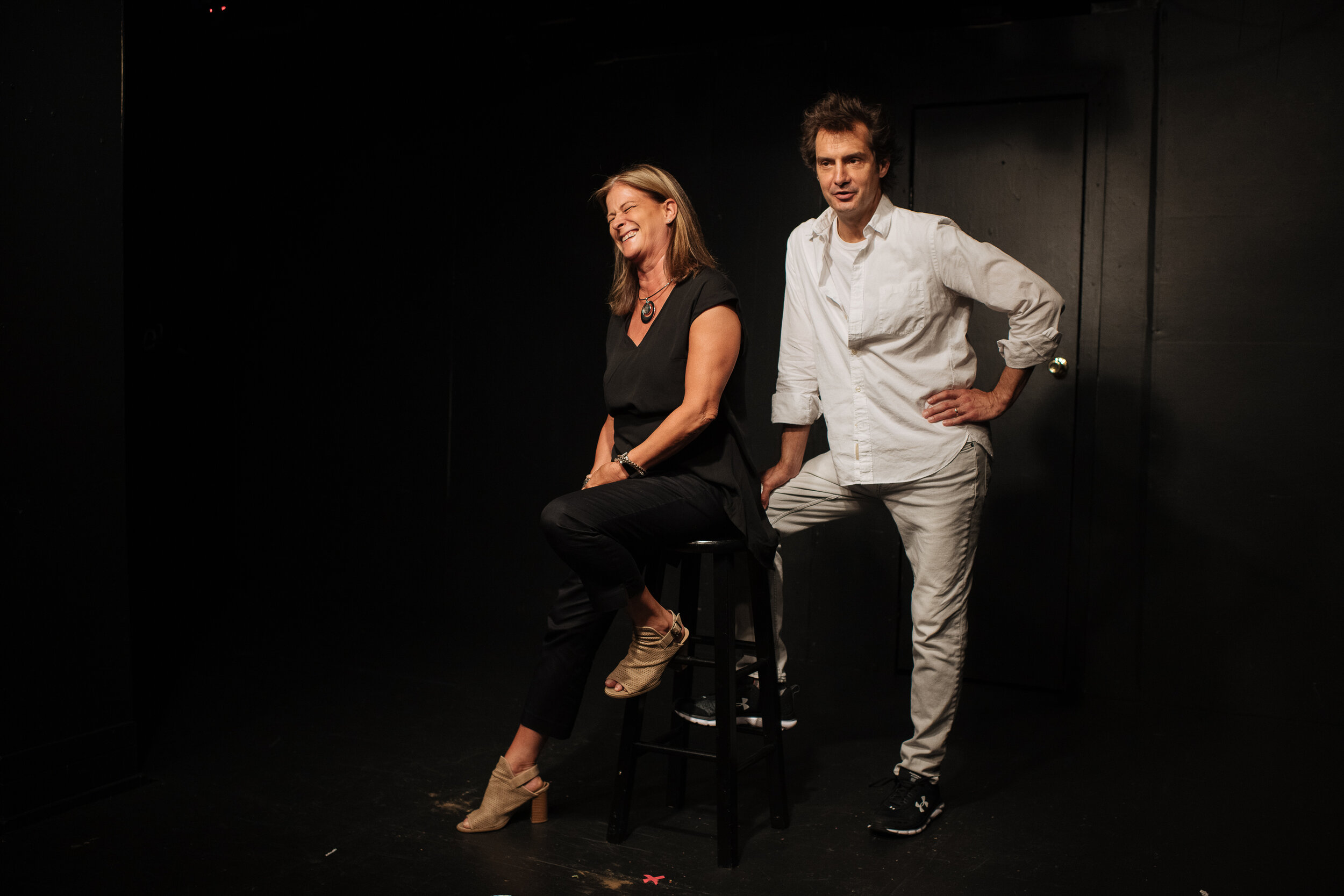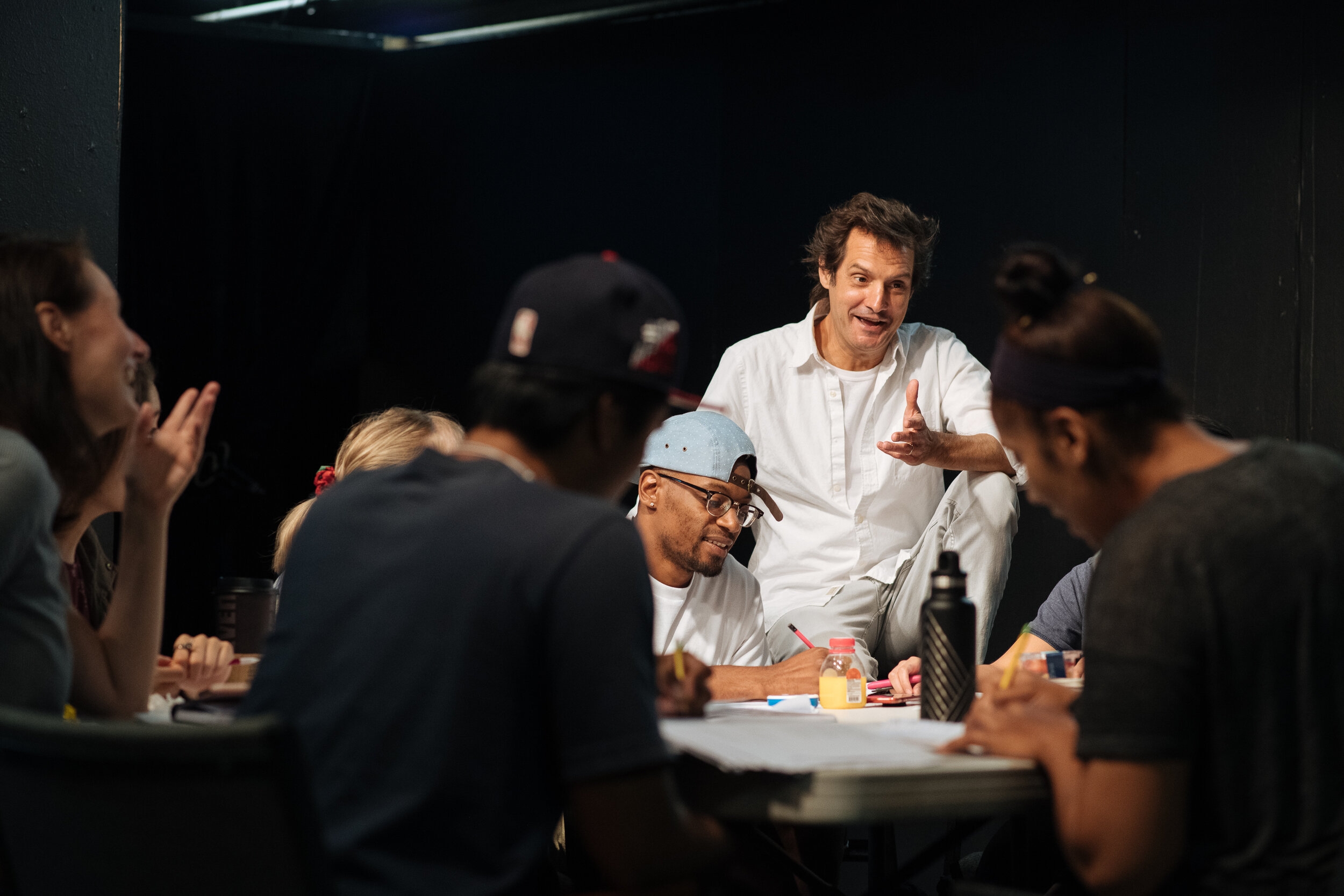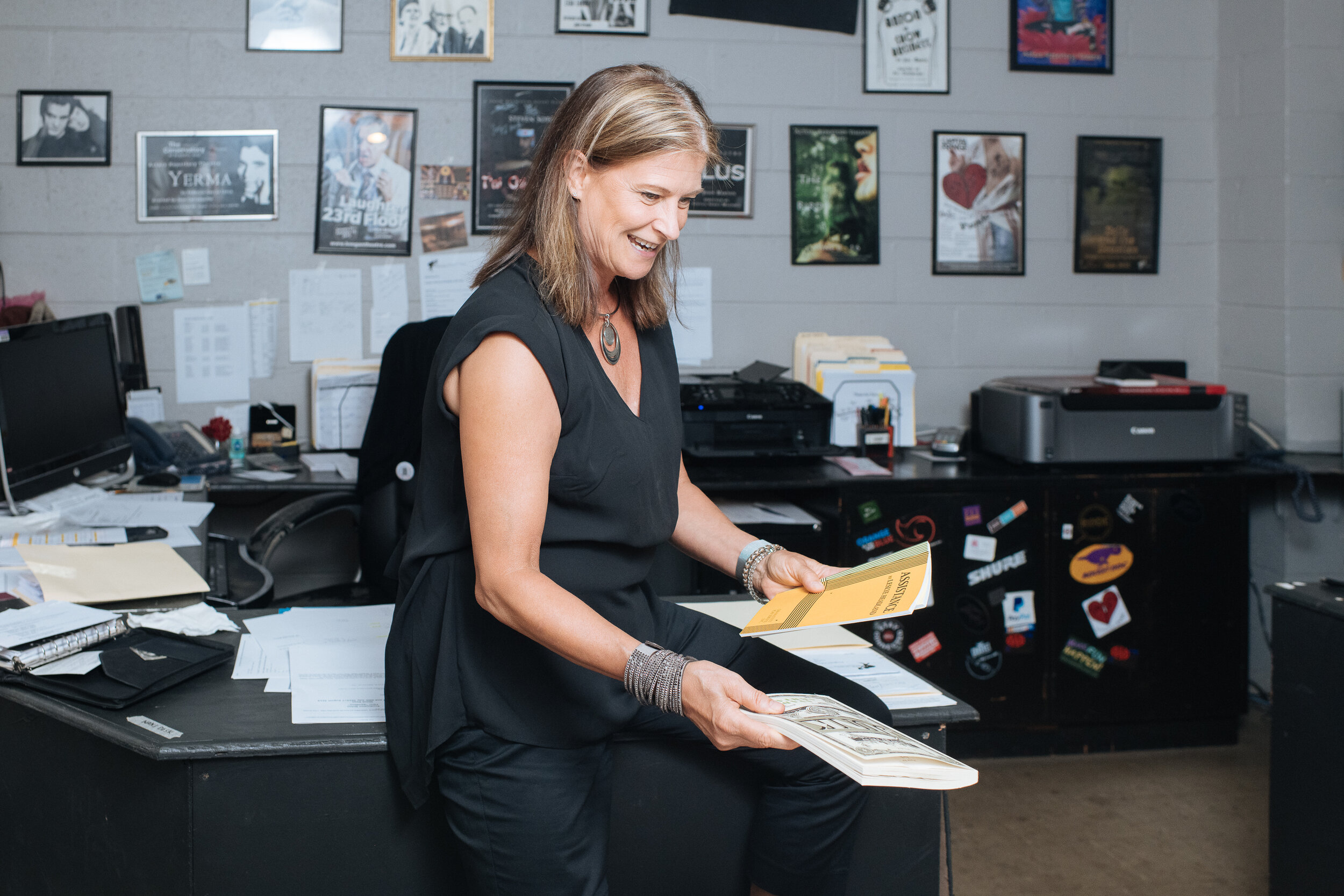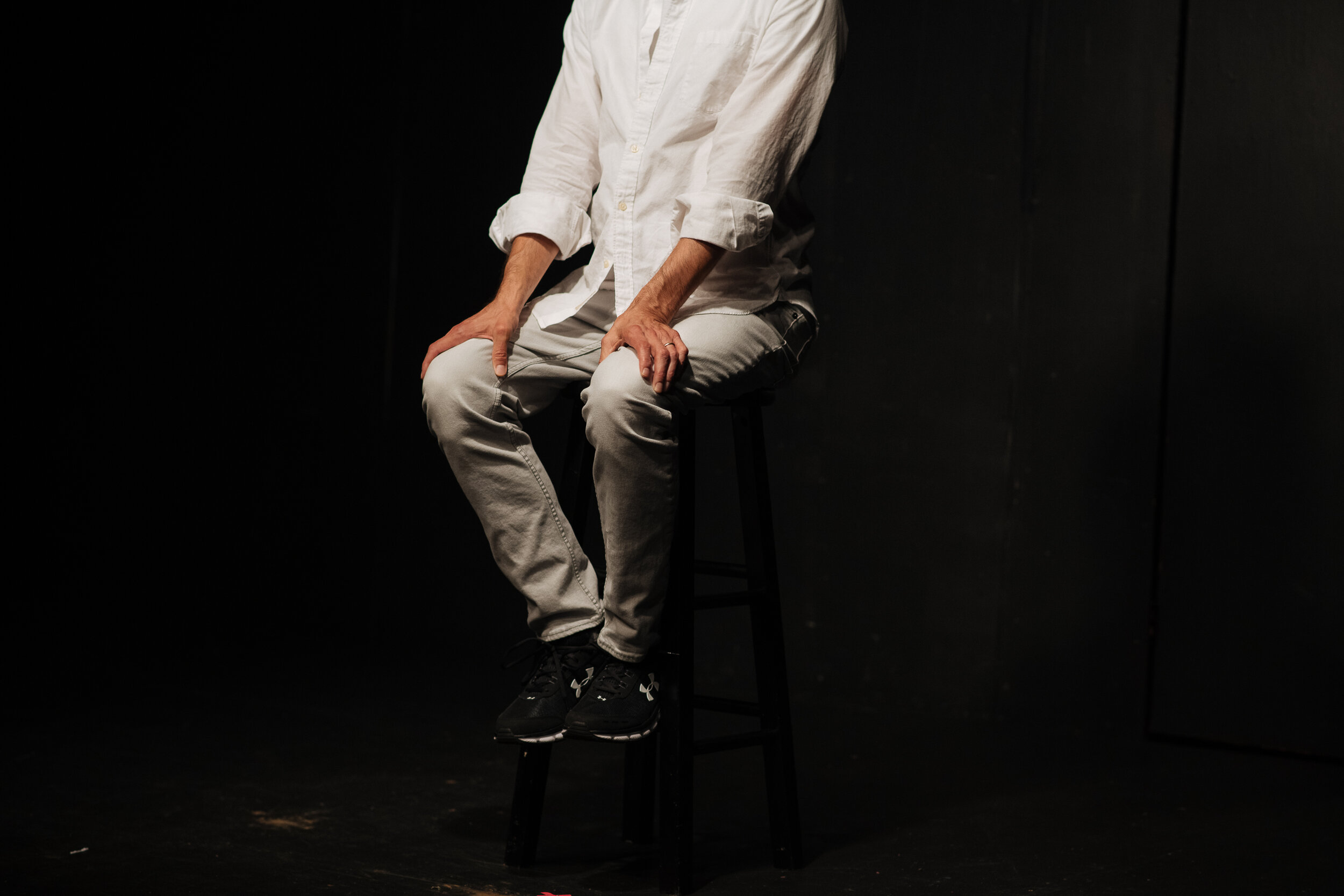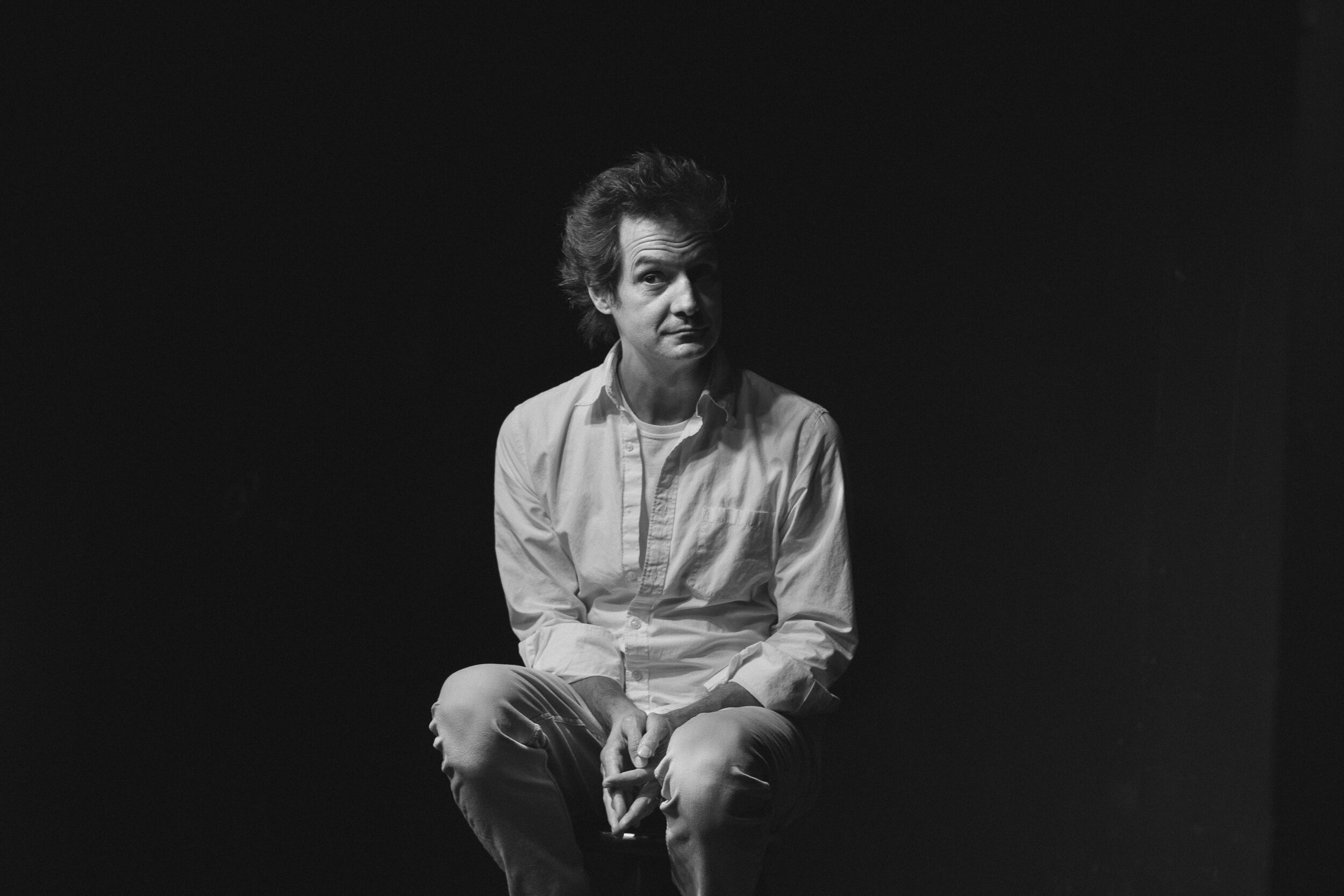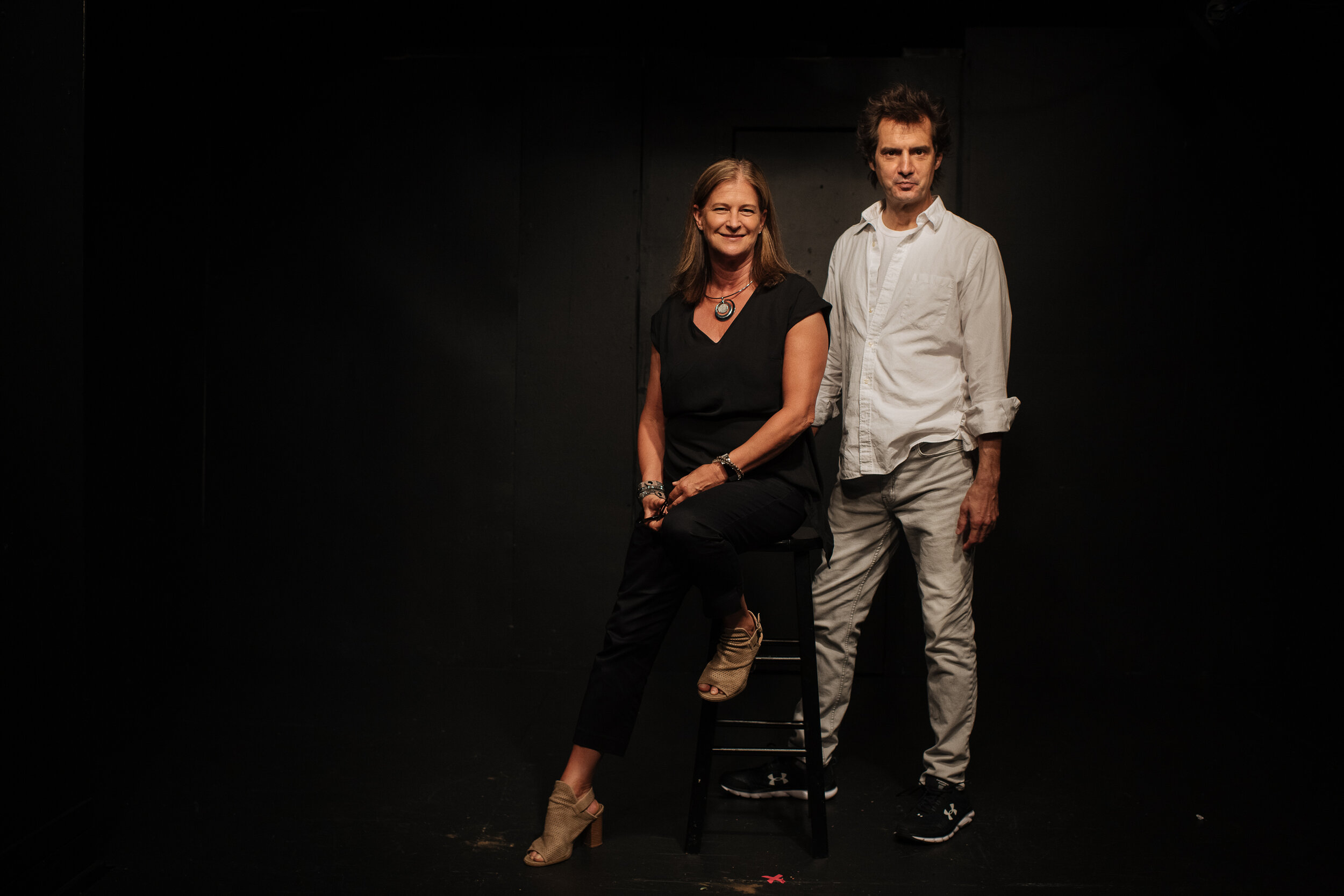‘We’re Very Committed to Producing Artists’
Ray and Nan Ficca
President & School Director, National Conservatory of Dramatic Arts
1556 Wisconsin Ave NW
Two chairs is all Ray Ficca needs in any acting class. The rest comes from within.
‘I’m a little against all the bells and whistles of acting school,’ he says. ‘Here’s two chairs, and let’s see what you can do. That’s the real test.’
Ray and his wife, Nan, have been running the National Conservatory of Dramatic Arts for over 20 years—a humble yet prolific program operating inside a basement-level building off of Wisconsin Avenue. It’s the only accredited acting studio in the city, and run with fierce autonomy.
‘Most conservatories in New York and other places are connected to theaters or big universities,’ Ray says. ‘We’re independent and we like it that way. We’re small in operation, and our pride and success are all of our alumni headshots on the wall who are now at Ford’s Theater or Arena Stage. We’re very committed to producing artists.’
Founded in 1975, the conservatory has been responsible for countless careers—and at least one marriage.
Ray and Nan were in the Georgetown University class of ’89, but didn’t meet until they were introduced at a party; Ray and Nan’s best friend from high school both training at NCDA at the time. Nan wasn’t interested in acting, but connected with Ray over a shared love for the arts.
‘My parents worked on the Hill, but my dad was a performer in a bluegrass band that played political fundraisers for candidates,’ Nan says. ‘He taught me how to play guitar and piano, and I sang in his band. Then I got involved with stage managing for Source Festival, and the more technical side. I’m the organizational lady.’
While Nan was comfortable behind the curtain, Ray was meant for the stage.
‘If you ask my Irish immigrant mother, she said it’s from her side of the family,’ Ray says. ‘My Italian father would have said it’s his family. I was always encouraged to not only be a patron of the arts, but to participate in the arts.’
They were drawn to each other immediately, and spent several years traveling for Ray’s acting career—teaching high school and college classes in between productions to survive. Eventually, the NCDA founder heard Nan was a talented marketer, and called the couple to see if they were interested in taking over the conservatory.
‘It was a natural fit, but still terrifying,’ Nan says.
Two decades later, they’re still at the helm—Ray training actors for the stage and screen, and Nan teaching the business and self-producing side of things.
Students come from as far as Loudoun County and Baltimore for the rigorous, three-year program—a diverse and close-knit community of actors from every socio-economic background who are trained for all media, and taught to focus on the craft in the absence of direction.
‘It’s the ‘teach a man to fish’ thing,’ Nan says. ‘If Ray just tells you how to say the line and where to walk, you don’t develop an artistic brain to figure those things out for yourself. The acting teacher’s job is to be the eyes and ears of an end user, which is an audience. There are days the teacher wants to just give a line reading, and the students just want to know how to do this, and we just have to keep having the conversation about craft and how to make them into artists. It’s the key to our curriculum.’
It seems to have worked. NCDA alumni have played every major stage in DC, and a good majority of the smaller ones. While some have gone on to New York City or Los Angeles, Ray and Nan encourage their students to consider launching their careers in DC.
‘People call DC a secondary theater market, but there are only four larger markets,’ Ray says. ‘New York, Chicago, San Francisco, and now Orlando because of Disney. Whether you have your sights set on Broadway or Hollywood, the DMV has more than 100 theater groups now compared to about 20 when I was a student, and it’s a great place to learn. Get yourself together here and get experience.’
‘DC isn’t a union-driven market, so there’s so much union and non-union work,’ Nan adds. ‘You can really build your resume. Those other markets are very union and agent driven, and you have to build your network first so you can be seen there.’
For all its focus on acting—20 hours a week, for four semesters—NCDA is equally committed to the business side of a student’s career. Nan says 100 hours are collectively devoted to auditioning and business planning, equipping each actor with more than just a dream.
‘Students are guided through figuring out what jazzes them up, and what they’re good at and what they love, but what you can do depends on your personal given circumstances,’ Nan says. ‘We were taught to pursue your dream, but have a job.’
‘I’ve waited tables, I’ve tended bar,’ Ray says. ‘Unless you get lucky at 16 or 17, every actor has a survivor job.’
Regardless of each student’s path, Nan says NCDA is a family. Alumni visit frequently, hanging out late into the night, or self-producing projects with fellow graduates. In an industry that can feel very isolating, no one is alone.
‘There’s a group of people who aren’t just wandering out by themselves,’ Nan says. ‘They know we’re here, and this is their second home.’
Though the average student is 27, others have just retired from the government or military—eager, at nearly 60, to learn how to act. Ray and Nan have a front-row seat for it all, likening each semester to the ‘most amazing’ non-scripted reality show.
One semester, an NCDA graduate couldn’t figure out how to pursue her dream while working grueling hours in an ER. Eventually, she moved to New York and traded in her career for a more flexible position at Urgent Care—finally able to audition for acting gigs on the side.
Another year, a Boeing engineer enrolled in the conservatory after being laid off, determined to prove his family wrong and become a film star. A few years later, he was landing TV and movie roles in L.A.
Sometimes, the growth is more subtle.
‘These stories usually come out at graduation,’ Ray says. ‘It’s the stuff you’re not even paying attention to. You have a student who’s told you for three years that everything is great, and at graduation they tell you they felt so insecure talking in front of people and never thought they’d be able to do it. It’s those stories that side-swipe you. They say you changed my life. I thought I was just teaching them how to act.’
The pay-off is immeasurable, though not without sacrifice. Ray still performs fairly regularly, but he and Nan spend 12 hours a day at the conservatory, often on nights and weekends watching student shows in the black box theater—all of which are free and open to the public.
Still, Ray says there’s no better gig.
‘We all have to have a job outside of acting, and what better way to do it than this? As many complaints as you have about running a school—which is 24/7 and harder the older you get—someone walks down the steps with their Helen Hayes award and tells you you’re the reason they have it, and you can’t beat that.’
